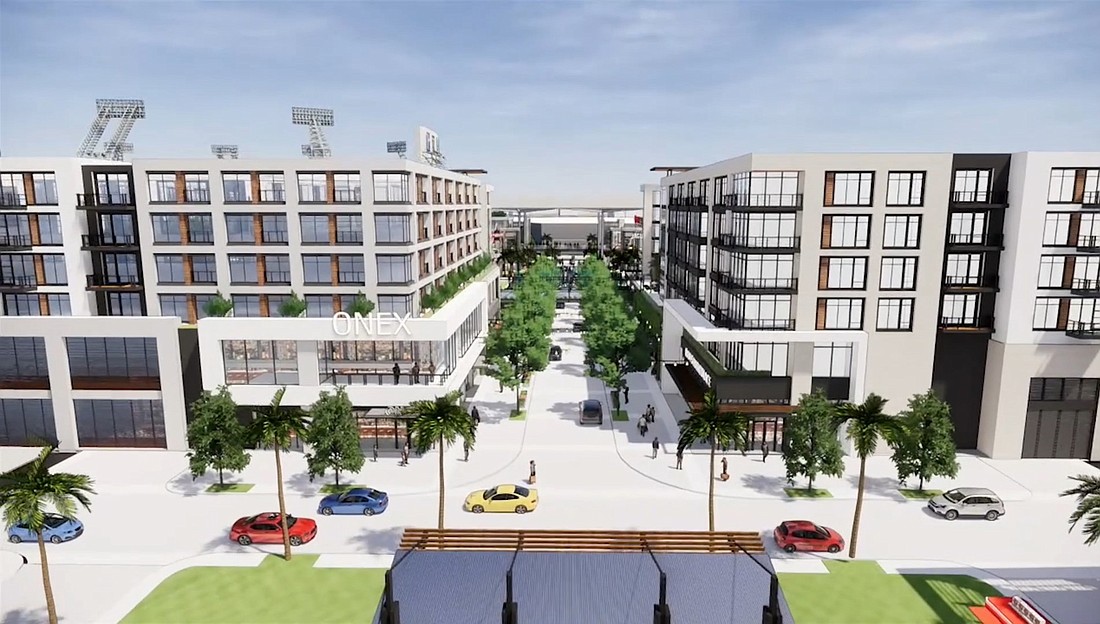
The Jacksonville Civic Council is on the record in support of the proposed Lot J development adjacent to TIAA Bank Field, but with conditions.
“We believe the City would be better with this project than without it,” states a letter delivered Nov. 16 to Mayor Lenny Curry and the 19 City Council members, signed by Civic Council CEO Jeanne Miller and Chairman John Delaney.
“We are happy to have the support of the Civic Council on the Lot J development," said Jordan Ellsbury, Mayor Lenny Curry's Chief of Staff in an email."The recommendations outlined in the letter are currently being undertaken by the City Council and the Council Auditor. That review is welcomed and an imperative component to the process.”
City Council President Tommy Hazouri did not immediately respond to requests for comment.
“This is appealing to us as downtown revitalization is a long time Civic Council goal,” the letter states.
The letter points out that, at more than $460 million, the Lot J proposal represents a significantly larger investment than the combined original costs of TIAA Bank Field, the Baseball Grounds of Jacksonville and VyStar Veterans Memorial Arena.
The city’s proposed contribution to the project includes taking on $208 million in debt, including its $50 million share for the $100 million Live! entertainment venue, $92.8 million for infrastructure at the site and a $65 million 50-year no-interest loan to Jacksonville Jaguars owner Shad Khan and The Cordish Companies, the city’s partners in the proposed mixed-use commercial, entertainment, retail and residential project.
“It is always better to have a wealthy partner with a strong and long-term mutual interest in the success of an investment,” the letter says.
“Finally, we believe that a project which helps protect the presence of the Jaguars in our small-market town is a significant positive for the community.”
However, with the Council Auditor raising questions about the return on investment for the city, the letter states the group’s support of the proposal depends on several conditions:
• Ample time must be provided for the Council, Council Auditor and the public to review the proposal. A rushed vote would leave too many questions and raise the specter of details emerging later that would have been better dealt with in the original proposal.
• Documents, pro formas, calculations, assumptions, projections, contracts, etc., must be made available to the City Council and the public. All direct and indirect costs and benefits related to the project must be included when assessing the deal.
This includes a full cost breakdown for, and therefore definition of, the public infrastructure and commercially reasonable cost estimates for each component of the project.
• A public-private partnership, by definition, includes both mutual protections and a long-term commitment to the city. Contractual terms must fully protect the city’s financial investment.
For example, the letter states, if for some reason the Jaguars were to leave Jacksonville at the end of its lease, what would happen to the project, and what risks are there to the city?
• As noted in the Council Auditor’s review of the proposal, there are several opportunities to enhance and improve the ordinance and agreements to ensure that the city and the taxpayer are protected. The letter says that the Downtown Investment Authority was established specifically to oversee and implement large-scale projects to ensure compliance with the Downtown Master Plan and Chapter 163, Florida Statutes, by requiring an independent market analysis and providing oversight throughout the project implementation period.
• Financial terms must be reasonable for the taxpayer. The city’s return on investment is often intangible, and harder to define. For example, the city spends several million dollars each year operationally in support of the Jaguars, but the presence of the team is of “immense intangible advantage to the citizenry.”
• The financial terms for both parties should align with the public’s interest in a successful, long-term operation that will increase patronage and residents for the region and Downtown.